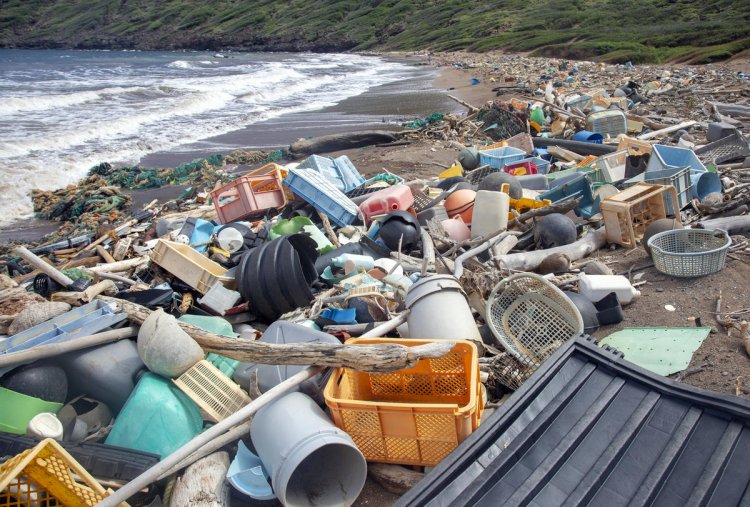Plastic Pollution at Its Disastrous High By 2040

An estimated 1.3 billion tonnes of plastic is destined for our environment- both on land and in the ocean by 2040, unless worldwide action is taken.
That's according to a global model of the scale of the plastic problem over the next 20 years.
Dr. Costas Velis from the University of Leeds said the number was "staggering" but that we had "the technology and the opportunity to stem the tide".
The report is published in the journal Science.
"This is the first comprehensive assessment of what the picture could be in 20 years' time," Dr Velis explained. "It's difficult to picture an amount that large, but if you could imagine laying out all that plastic across a flat surface, it would cover the area of the UK 1.5 times.
"It's complex [to calculate] because plastic is everywhere and, in every part of the world, it's different in terms of how it's used and dealt with."
To turn this complex problem into numbers, the researchers tracked the production, use and disposal of plastic around the world. The team then created a model to forecast future plastic pollution. What they called a "business as usual" scenario - based on the current trend of increasing plastic production and no significant change in the amount of reuse and recycling - produced the 1.3 billion tonne estimate.
By adjusting their model, the researchers were able to project how much different interventions would affect that number; they tweaked their model to increase recycling, reduce production, and replace plastic with other available materials.
Winnie Lau from the US-based Pew Charitable Trusts, which funded the research, told BBC News that it was vital to put in place every possible solution. "If we do that," she said, "we can reduce the amount of plastic that goes into the ocean - by 2040 - by 80%."
But even if "all feasible action" was taken, Dr. Velis explained, the model showed there would be 710 million extra tonnes of plastic waste in the environment in the next two decades.
There is no "silver bullet solution", for the plastic problem. But an often overlooked issue that this study highlighted was the fact that an estimated 2 billion people in the Global South have no access to proper waste management. "They have to just get rid of all their rubbish, so they have no choice but to burn or dump it," said Dr. Velis.
And despite playing a major role in reducing global plastic waste, the roughly 11 million waste pickers- people who collect and sell reusable materials in low-income countries - often lack basic employment rights and safe working conditions.















































